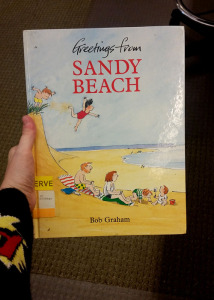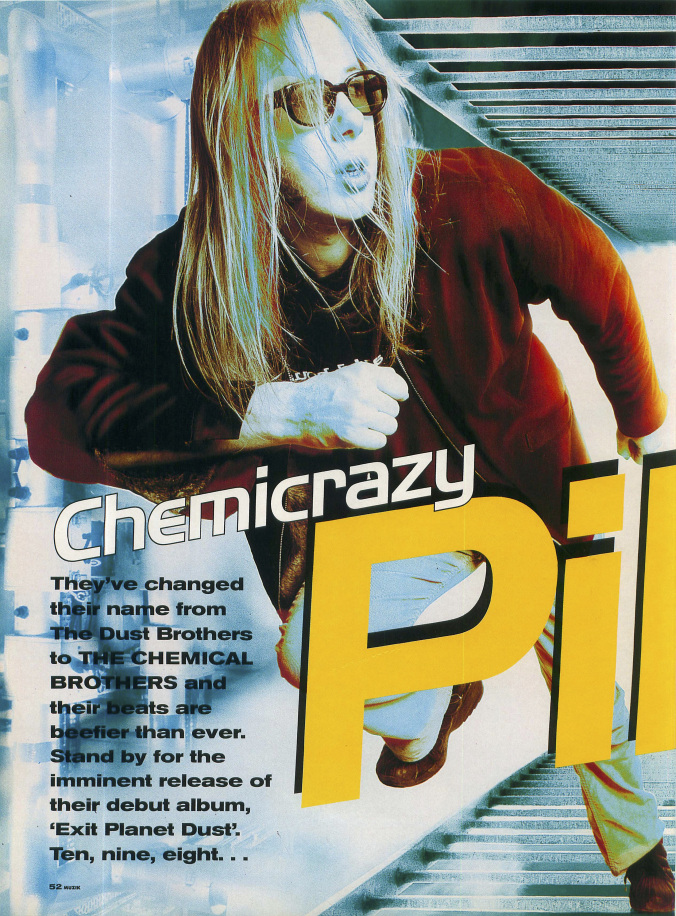When you apply the word mythology to the fabric of modern television, you have to pay a great deal of lip service to The X-Files, because it was really the first TV show to couch its storytelling in that terminology. Chris Carter’s seminal 1990’s series, one of the most significant pop-culture features of the decade, invented what became known as the ‘mytharc’ – not just a continuing narrative regarding the presence of extra-terrestrial life on Earth and a sinister, global conspiracy to cover their existence up, but a veritable mythological template on which to tell a story, depict archetypal character journeys, and immerse viewers in a world where they could theorise, suppose and contemplate.
The X-Files built its entire success around its sense of mythology, alongside the chord struck by its partnership duo, FBI agents Fox Mulder & Dana Scully, and those fans who didn’t show up to see Mulder & Scully get it on, almost certainly were there to enjoy the kind of continuity, richness and adherence to ‘canon’ with almost the fervour of the Star Trek or Star Wars fanbases. Which is why, when The X-Files finally returned to TV after almost a fifteen year break, it was almost for many fans baffling to see Carter seemingly contradict and downright reject the mythology he had so painstakingly created.
In case you didn’t know, I have a vested interest in The X-Files. It has been my favourite TV show for over twenty years. I run a (relatively) successful podcast and fan community around it. The show is enormously meaningful and personal to me in a way no other piece of media will likely ever be. As a teenager when The X-Files first aired, in the days it dominated television akin to how Game of Thrones does now, I was unquestionably one of the viewers who tuned in for the ‘mytharc’. Don’t get me wrong, I wasn’t just watching for the conspiracy stories; indeed the older and more critical I become in my thinking, the more the standalone or ‘monster of the week’ tales The X-Files popularised stand out as creatively stronger pieces of work.
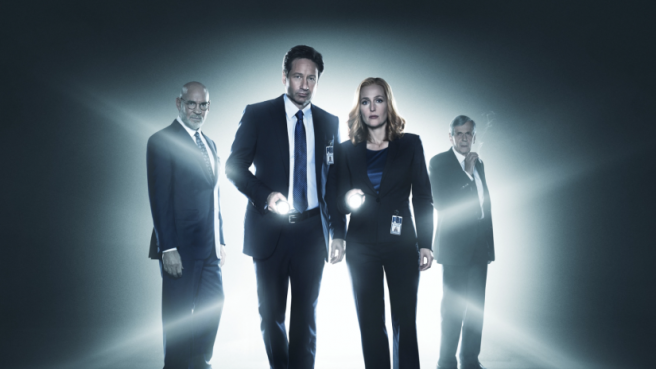
As a fan, nonetheless, I live for immersion within the deep and dense level of mythology Carter’s show has always provided, with no equal. I love Lost given it came very close to creating its own singular level of mythology, and I love the aforementioned Game of Thrones because it too has depth, world-building and substance, but The X-Files mythology is special. Unique. That’s perhaps subjective, but arguably it’s longevity struck a chord. Therefore, following the cliffhanger conclusion to 2016’s Season 10 final episode ‘My Struggle II’, fans such as myself have felt in somewhat of a quandary as to many of Carter’s creative choices in regards to the approach to his own mythology.
Put simply, ‘My Struggle II’ cemented what seemed to be apparent in Season 10 premiere, ‘My Struggle’: The X-Files now had a mythology *within* a mythology. What do I mean by this? Well, admittedly, the answer is complicated. To make sense of the new mythology, we have to understand the old. Here, roughly, is how the original mythology that underpinned The X-Files worked.
Millions of years ago, an alien intelligence arrived on Earth in the form of a pathogen, which often would constitute itself in a black oily substance (known, appropriately) as the ‘black oil’. Before the aliens left, it’s suggested strongly they seeded what became life on Earth, and it co-existed with the black oil virus which lay dormant after the Ice Age. The aliens always planned to return and reconstitute the pathogen, which they have apparently used to infect all life in the universe. They call it ‘Purity’ and certainly in human hosts it can seed and birth an extra-terrestrial biological entity – literally infecting and using human bodies to gestate alien beings.
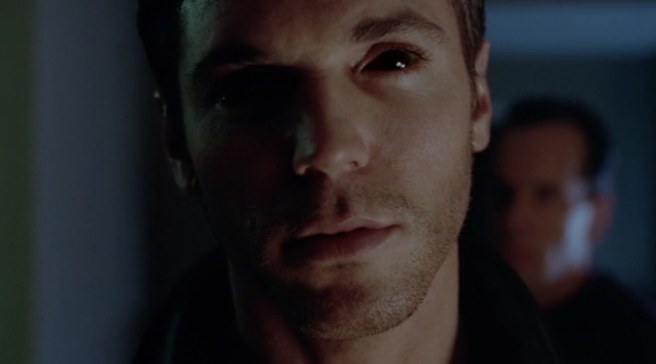
In 1947, an alien spacecraft crashed to Earth. Maybe Roswell, maybe another site. American scientists recovered from the wreckage an alien embryo, a fetus, which a group of men in the State Department after WW2 came together to protect and keep secret. They were known as the Syndicate, and they made contact with the alien species and forged a deal: in exchange for their lives, and the lives of their families, they would work with the science recovered from the crash site to develop an alien-human hybrid, while helping the aliens prepare their colonisation efforts on Earth. This came to a head in 1974, when the Syndicate forestalled colonisation by giving family members up to the aliens as insurance they would continue the project – including Mulder’s sister Samantha, whose unexplained disappearance from their home when he was just 12 marked his entire life. The Syndicate were collaborators but they also worked, in a race with the Russians, to develop a vaccine against the black oil as a way of fighting back against the alien threat.
During the first six seasons, Mulder starts putting all of these pieces together and the Syndicate, ultimately, are almost all murdered by faceless alien rebels (to prevent infection by Purity) who have formed a resistance against the alien colonists. From the ashes of this conspiracy, the alien colonists begin devising a new manner of control – turning alien abductee test subjects into invincible replicants controlled by an alien impulse. Scully also gives birth to a child, William, who has some ambiguous level of alien power, thanks in part to her own abduction and experimentation by the Syndicate, with the strong suggestion William has some kind of greater prophetic destiny to either lead or destroy the alien colonists. Mulder discovers a new date of alien colonisation: December 22, 2012. When a secret government made up of alien replicants largely will bring on the viral apocalypse (presumably) and wipe out mankind.
That’s where the ninth season left it. The mythology was spelled out in season (then series) finale ‘The Truth’ and fans assumed the colonisation and quite how Mulder & Scully could stop it would be dealt with in the successive, intended movie franchise that would follow the TV run. For a multitude of reasons, this didn’t happen – 2008 saw the release of follow up movie I Want to Believe, but it entirely eschewed playing with the alien mythology, choosing to ignore the cliffhanger endings ‘The Truth’ provided. Fans fully expected an ‘X-Files 3’ to hit the mytharc head on, possibly to release in 2012 to cash in on the colonisation date and all the real world arcane doomsday mythology surrounding that date. Again, it didn’t happen. Surely Carter had missed the boat in an enormous way?

Come 2013, the twentieth anniversary of The X-Files, it became clear to everyone involved at Fox and in the creative team of the series, that the fanbase still existed to warrant a revival of the original series. By 2016, this had become a reality. The ‘event series’ aka Season 10 (as most of us called it) returned with every intention of returning the show to its roots: Mulder, Scully, the FBI, investigating the paranormal. In the final few seasons of the show, and the sequel movie, storytelling choices dominated in places by the realities of television production meant The X-Files had evolved away from this original dynamic. What people wanted was Mulder & Scully back together, and Carter—alongside his smaller production staff of Glen Morgan, Darin Morgan & James Wong (all of whom had been absent from the series since around 1997)—gave it to them.
Yet what Carter didn’t give fans was a cogent, logical continuation of the series’ mytharc. Rebooting the concept to an extent was necessary, and wise. I Want to Believe had to not just work hard to put Mulder & Scully back together at the FBI, but ignore massive narrative threads left open at the end of ‘The Truth’ (principally the fact the FBI was now controlled by alien replicants who wanted Mulder dead for ‘murder’) in order to facilitate a standalone plot that would make sense to audiences going to the movies who were not immersed in X-Files lore. This approach in the end benefited no-one – thanks to the film being released up against Christopher Nolan’s cinematic powerhouse The Dark Knight, few casual fans went to see it, while X-Philes were frustrated by the lack of mythology and big-budget storytelling.
Therefore ‘My Struggle’, the Season 10 premiere, threw audiences back into the alien mythology we hadn’t seen for almost fifteen years, but Carter chose to completely ignore where the mytharc had led his narrative up to the end of Season 9. Gone seemingly were the alien replicants in the FBI. Uber villain the Cigarette-Smoking Man was improbably alive, having literally had his flesh burned off by a missile strike in ‘The Truth’. And, most contentiously, Mulder discovered—upon being re-immersed into the work that he was forced to abandon so many years ago—that everything he may have learned over the first nine seasons of the series was quite possibly a lie: that rather than sinister alien forces plotting to colonise the planet, *human* conspirators had since 1947 been using recovered alien technology (from Roswell, it finally confirmed) to engineer a plot to control America and the world themselves.
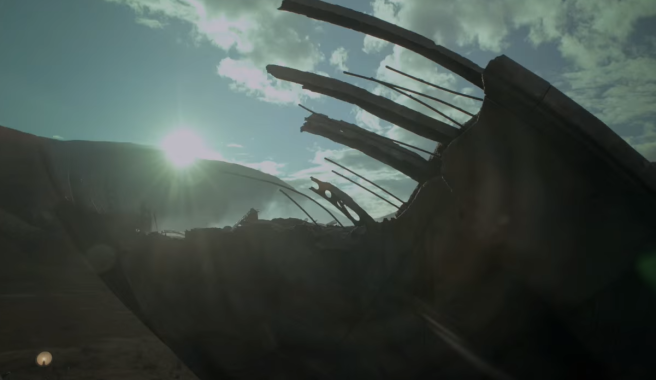
This quite immediately didn’t line up with seasons and seasons of mythological storytelling. Audiences had seen, quite clearly, a myriad of extra-terrestrial lifeforms operating on Earth with nefarious purposes – shapeshifting bounty hunters; the aforementioned black oil which could irradiate people, take over bodies and seed them with alien biological entities; faceless alien rebels and the Terminator-style replicants with metallic exoskeletons, susceptible only to a rare form of geology called ‘magnetite’. All of this, plus their connections to the Syndicate, were apparently a gigantic slight of hand by the still-active human conspirators planning a takeover of America. The biggest narrative problem was that Mulder almost immediately believed the whole thing, despite everything he had seen and experienced.
So why exactly would Carter make a creative choice such as this? It certainly wasn’t because he forgot about the existing mythology after such a long break away from the series. Mulder’s opening preamble in the premiere catches us up on many of the key moments of the original series through photographs, and this is perhaps where we need to be honest with ourselves as to what the revival series’ are. They are not the ‘original series’. They’re not a reimagining or even a reboot in the conventional sense, holding to the same continuity, but Season 10 and the imminent Season 11 are not the same show as Seasons 1 to 9. This is very much intentional.
When Star Trek, a major cultural touchstone for Carter and The X-Files, first premiered in 1966, during its run it was known simply as Star Trek. The suffix of The Original Series was added much later, following the sequel and spin-off shows of The Next Generation era. In many respects, Seasons 1 to 9 of The X-Files should now be given the same suffix: The Original Series. They were born in a very different age, both socially, politically and in terms of television production. The X-Files inspired and helped birth the Golden Age of Television we are in the throes of thanks to its sophisticated approach to storytelling, weaving a continuing narrative across almost a decade of work, but it also operated in a 22-24 episode per season, writers room framework which, aside from a stack of conventional network shows, no longer exists today, certainly not for most prestige television.

The revival seasons of The X-Files are six and ten episodes respectively, billed as ‘event series’. By definition, they are special treats for audiences. They are in a hallowed pantheon with its own rules. Had everyone involved wanted to do twenty episodes, the money probably would have been found. If The X-Files therefore operates with its own sense of rules and logic, by the same token Carter is very much free to reinvent what the series means to an older, or even entirely new, audience. This is the principal reason why he didn’t pick up on the Season 9 threads and continue the replicants in the FBI story, or bring back magnetite, the black oil, even the characters of John Doggett & Monica Reyes—Mulder & Scully’s erstwhile replacements designed to launch a new era for the show which never happened. Reyes *did* return, but in very contentious circumstances the new season may now work hard to undo.
A major reason The X-Files worked in 1993 was because it tapped into, as many people over the years have commented on, the zeitgeist. I would refer you to the exemplary analysis conducted by Darren Mooney on The Irish M0vie Blog for a greater level of detail about this, far more than I could hope to match. But the key to understanding Carter’s choice to develop a new, reimagined mythology within his own series is precisely because the zeitgeist has shifted. The sands have moved beneath our cultural feet. 1993 had Bill Clinton in office, saw America sailing out of the Reagan era and externalising feelings of anxiety through fascination in UFO culture and alien abduction, connected to post-Watergate paranoia and growing domestic distrust in government. 2016 was a year which ultimately saw the rise of Donald Trump to the Oval Office and an increasingly disturbing, anxious period in modern Western history.
Carter’s new mythology recasts the true enemy as within. The show’s final seasons, taking place at the end of a relatively peaceful 1990’s and before the shock event of 9/11, externalised the force to fear as alien impulses taking over our bodies, consuming our souls. The human villains had all, seemingly, been destroyed by their own hubris. Season 10 wants to make us afraid of our government and institutions again; global surveillance through pervasive social media, political conditioning, proxy wars for oil reserves, a military-industrial complex operating unchecked to kidnap and experiment on American citizens, and ultimately a New World Order-style takeover plot of America, and then the world. The exact same apocalypse Carter originally presented as a viral apocalypse and alien colonisation is reconceptualised as a dystopian, Orwellian nightmare – one, indeed, in which we see the viral element remains in season finale ‘My Struggle II’, it’s simply now the result of a human conspiracy exploiting alien biology.
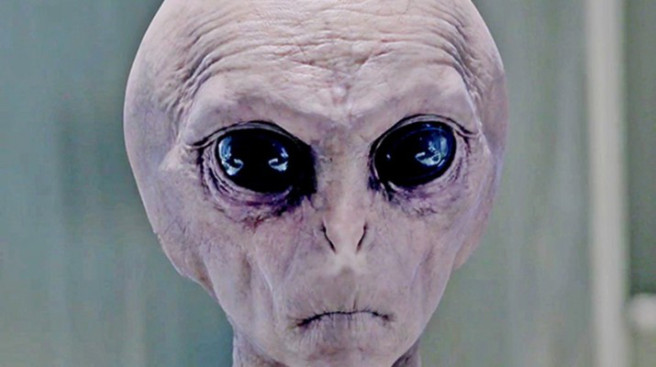
Season 11, devised now Trump’s ascendancy has given credence to far-right fascist polemic and a range of regressive, conservative, controlling policies such as targeting migrants, going after Net Neutrality, dismantling medicare, enormous tax breaks for the rich, and the powerful rise of ‘fake news’ in which personal truth is recast as whatever fits the narrative of the day, likely will touch on a whole new level of paranoid conspiracy theory and anxietal terror. Carter understands, quite rightly, that The X-Files struck such a chord and has remained a current force within popular culture precisely because it looked over the next hill, as it were – that it prefigured fears and anxieties for our modern age, often allegorically externalised through alien or paranormal ‘monsters’. His mythology was never in the details. It was about what it reflected back from our own society.
We need to reexamine, therefore, what The X-Files mythology actually means. We need to remember that Chris Carter has always been interested in what we’re afraid of, or what we have to fear. This is all over his work in The X-Files and outside of it. The mytharc of the Original Series was dense and fascinating, but it shouldn’t remain the dominant feature of why Carter is telling these stories. It is not religious scripture to abide by, but a roadmap to follow. Fans are more than justified to be concerned about continuity, because these matters are absolutely important, but not at the expense of The X-Files still being relevant to our culture and our world.
That’s how it survives. That’s how, ultimately, the truth remains out there for us to experience.
Advertisements Share this:

